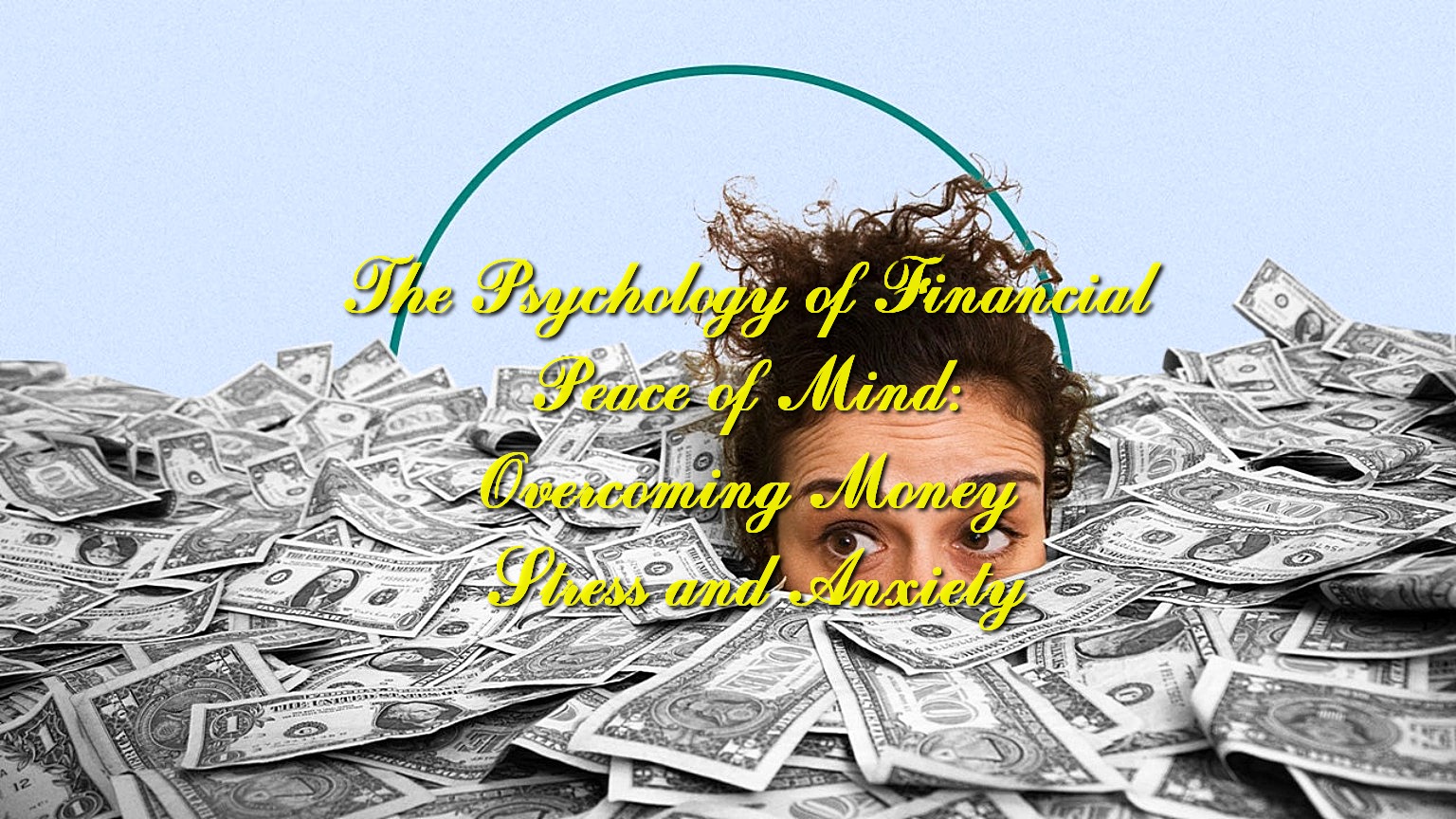The Psychology of Financial Peace of Mind: Overcoming Money Stress and Anxiety
Financial peace of mind is a state of mental and emotional well-being that arises from a sense of control and security over one’s financial situation. In today’s fast-paced and economically uncertain world, many people experience money stress and anxiety that can take a toll on their overall mental health. This article explores the psychology behind achieving financial peace of mind and offers insights into overcoming money-related stress and anxiety. We’ll discuss five key aspects of this psychological journey.
Understanding Money Beliefs and Mindsets

The foundation of financial peace of mind begins with understanding and examining your money beliefs and mindsets. Many people inherit their attitudes toward money from their parents or early life experiences, which can shape their financial behaviors and attitudes. Identifying these beliefs and mindsets and understanding the sum of money you have is essential for making positive changes. Tools like https://www.thepaystubs.com/ can aid in creating your recent paystubs.
Financial Literacy and Planning
Financial literacy is a crucial aspect of achieving financial peace of mind. Knowing how to manage your money effectively, budget, save, invest, and plan for the future can greatly reduce money-related stress. Financial education empowers individuals to make informed decisions and feel more in control of their financial destinies.
Developing an all-encompassing financial strategy customized to your objectives is equally pivotal. This strategy should encompass both immediate and future aspirations, encompassing budgeting, establishing an emergency reserve, and crafting an investment blueprint. A meticulously designed plan can instill a feeling of purpose and assurance in your fiscal choices.
Emotional Intelligence and Money Management
Emotional intelligence (EQ) plays a significant role in managing money stress and anxiety. EQ involves recognizing and managing your emotions effectively, and it’s essential for making rational financial decisions. Emotions like fear, greed, and impulsivity can lead to financial mistakes, such as overspending, impulse buying, or making hasty investment decisions.
Developing emotional intelligence allows you to navigate financial situations with a calm and rational mindset. Mindfulness techniques, meditation, and therapy can help improve emotional intelligence and enable better money management.
Building a Safety Net
One of the primary sources of money-related stress is the fear of unexpected financial setbacks. Building a financial safety net, such as an emergency fund, is a critical step in achieving peace of mind. Knowing that you have money set aside for unexpected expenses or emergencies can alleviate a significant amount of anxiety.
Experts often recommend having three to six months’ worth of living expenses in an emergency fund. This safety net provides a buffer against unforeseen financial challenges, such as medical bills, car repairs, or job loss, and reduces the need to rely on credit cards or loans during difficult times.
Seeking Professional Guidance and Support
Sometimes, achieving financial peace of mind requires seeking professional guidance and support. Financial advisors, counselors, and therapists can help you navigate complex financial issues and provide strategies for managing stress and anxiety related to money.
Additionally, support groups or online communities dedicated to financial well-being can offer a sense of belonging and shared experiences. Discussing your challenges and successes with others who are on a similar journey can be both therapeutic and motivating.
Conclusion
The psychology of financial peace of mind is a multi-faceted journey that involves understanding your money beliefs, acquiring financial literacy, managing emotions, building a financial safety net, and seeking professional support when needed. By addressing these aspects, individuals can work towards a state of mental and emotional well-being where money stress and anxiety no longer dominate their lives. Achieving financial peace of mind is not just about accumulating wealth; it’s about developing a healthy and balanced relationship with money that fosters long-lasting happiness and security.


